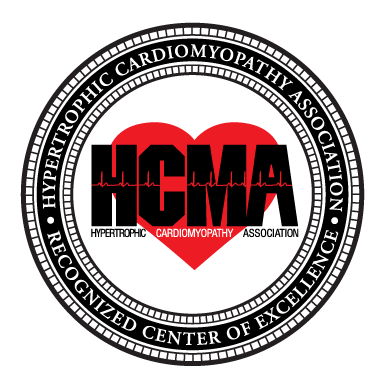Hypertrophic Cardiomyopathy Treatment
There are many treatment options for hypertrophic cardiomyopathy (HCM), depending on whether the patient has symptoms and whether the patient is at risk of sudden cardiac death as a result of HCM.
The University of Maryland Heart and Vascular Center's Hypertrophic Cardiomyopathy Program offers a variety of HCM therapies, from medicine to surgery. We provide all the care you need right here on our campus; there's no need to travel for advanced diagnostic or minimally invasive procedures. Our team works together to develop a customized treatment plan to help you – and your family – live well with HCM.
Noninvasive Treatment Options for Hypertrophic Cardiomyopathy
- Medication – There are medicines that relieve symptoms and make it easier for the heart to pump and relax properly. Medications can lower blood pressure, improve circulation, reduce the amount of extra fluid the body is retaining, slow the heartbeat, and make the heart more relaxed and pump better.
- Risk stratification – During this process, we look at the patient's risk of sudden cardiac death or other life-threatening complication, deciding if they are high-risk or low-risk.
Procedures to Treat Hypertrophic Cardiomyopathy
Sometimes medicine may not manage hypertrophic cardiomyopathy well or become less effective over time. If a patient is determined to be at a higher risk, the UMMC team may recommend one of several procedures.
If a procedure becomes necessary, you're in great hands. The University of Maryland Heart and Vascular Center takes care of more heart surgery patients than anywhere else in the state of Maryland***. Our team offers minimally invasive approaches and traditional cardiac surgery, which are all chosen by a patient's risk. Procedures include:
- Device implantation, including pacemakers and implantable cardioverter-defibrillators (ICDs)
- Surgical myectomy - shaving away the enlarged muscle fibers. This improves blood flow out of the heart, and after recovery many patients report a significant improvement in their symptoms.
- For patients with severe hypertrophic cardiomyopathy, the thickened muscle fibers may affect the mitral valve's ability to work properly. In those cases, a mitral valve repair may be completed at the same time as myectomy.
- Alcohol septal ablation - for patients who are not surgical candidates, a minimally invasive option that uses catheters to gain access to the heart. A solution of 90-percent pure alcohol is injected into the affected part of the heart muscle, shrinking it and improving blood flow.
- Heart transplant - considered when medications and surgeries are not enough to stop the disease progression.
The team at the University of Maryland Heart and Vascular Center's Hypertrophic Cardiomyopathy Program builds long-term relationships with our patients and their families.
Because we see patients as a team, and follow patients carefully over the years, we can design the best treatment plan for each individual. And because we treat both children and adults with HCM, we can offer the best possible treatment for the whole family.
***Based on APR-DRG codes from July 1 through June 30, 2017. Data set includes unique and repeat patients ages 18 and older.

